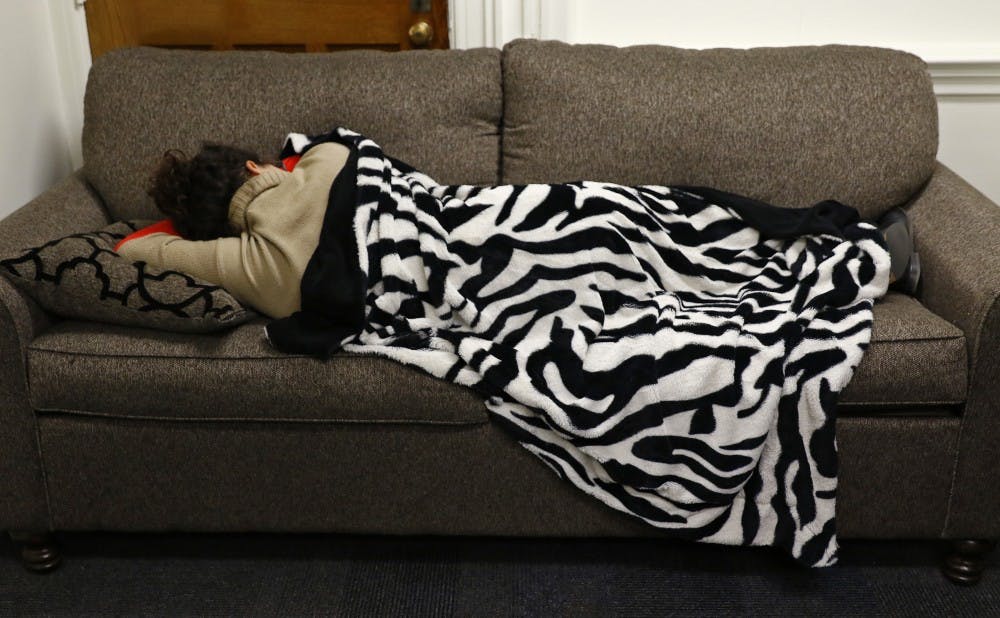Humans evolved to have shorter but deeper sleep than our closest animal relatives, research by Duke scientists suggests.
Duke evolutionary anthropologists David Samson and Charles Nunn studied sleeping patterns of hundreds of mammals—including 21 species of primates—in relation to ecological factors. Samson and Nunn found that humans are huge outliers who have exceptionally shorter sleep times and a higher proportion of rapid eye movement sleep—a deep stage of sleep that is important for consolidating memory and involves mental processes that may benefit humans.
“All great apes, including humans, build nests on the ground and lay down to sleep. This exposes us to more predation,” Nunn said.
He explained that as human ancestors moved from sleeping in the trees to building nests and sleeping on the ground, they evolved to have shorter sleep due to safety reasons.
The two researchers found that the wide variation in different animal species’ sleeping patterns could also be accounted for by ecological traits such as body size and the availability of food. They modeled differences in sleep times among species using statistical techniques but noticed that humans are an exception.
“What we do is build models where we predict how much sleep we will find in humans if humans were just typical primates with the various kinds of traits that humans have,” Nunn explained. “We saw that the actual sleep times that humans had were actually very different from what you might predict. It’s much shorter. ”
The unique human sleeping pattern also holds true in traditional societies without electricity—suggesting that the evolution of humans’ shorter sleeping time was not solely due to the artificial lights in the modern society.
For instance, people tend to stay up past darkness around the world—even without electricity, they use fires or even flashlights and behave flexibly with regard to when they go to sleep, Nunn noted.
Shorter sleep also allows more time for social and individual learning as well as socializing, he added.
In addition to shorter sleeping time, humans also have higher portion of REM sleep, making up approximately 25 percent of the overall sleep, than most primates.
“You can’t really achieve it without a safe place to lie down because the body is largely paralyzed during REM sleep.” Nunn said.
The two researchers intend to continue their study of sleeping patterns and utilize the knowledge to help solve global health problems. Samson is now in Tanzania studying the sleeping patterns of a hunter-gather society there.
“We are really interested in understanding the global patterns of sleep. How does that change seasonally? How does that change based on the development status of different countries?” Nunn said.
He explained that in some poor developing countries, people also have very poor sleep quality. One of their goals is to understand how and why people are suffering from poor sleep and how it is linked to global health challenges that people are facing around the world.
“It all really revolves around studying human health in an evolutionary perspective,” Nunn said, “It’s important to understand why we have the traits we have so that we can better understand and improve in health.”
Get The Chronicle straight to your inbox
Signup for our weekly newsletter. Cancel at any time.

